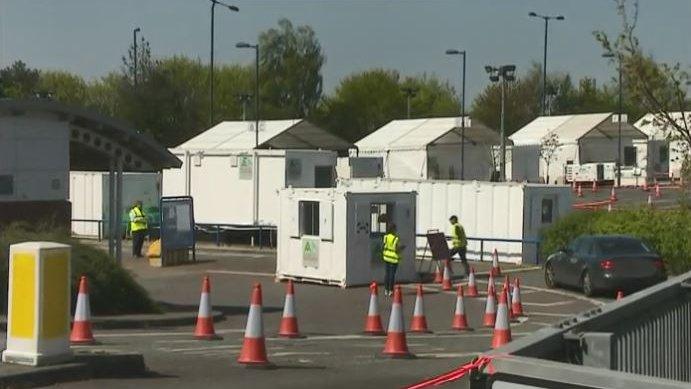Ipswich: 'It's surprising we have the lowest Covid rate'
- Published
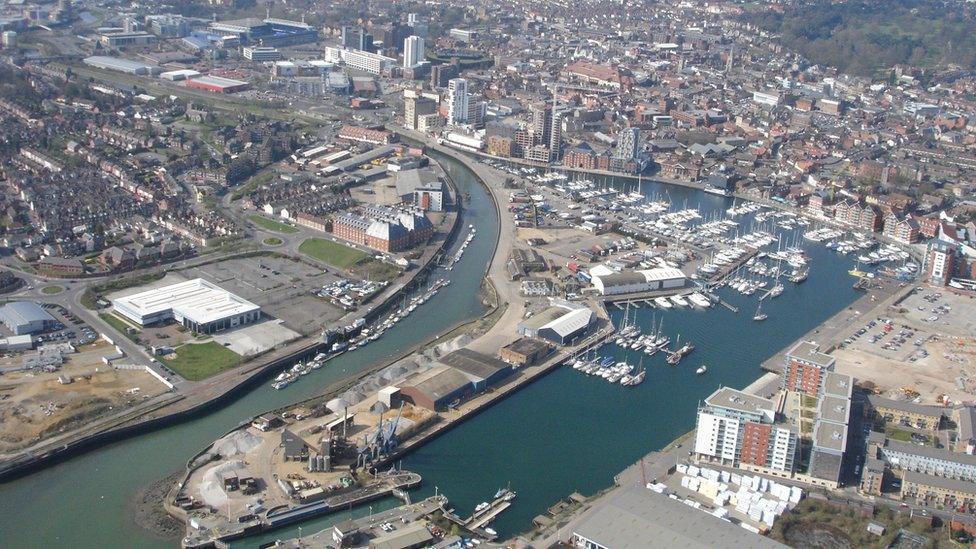
In the week leading up to Christmas, Ipswich had 273.2 cases per 100,000 (374 new cases) which was the highest in Suffolk
With just five Covid cases per 100,000 in the week up to 12 June, Ipswich has the lowest rate in England. The town has previously had one of the highest rates in the country. The BBC visited Ipswich Waterfront to ask people what the town was getting right.

'People are quite eager for their jabs'
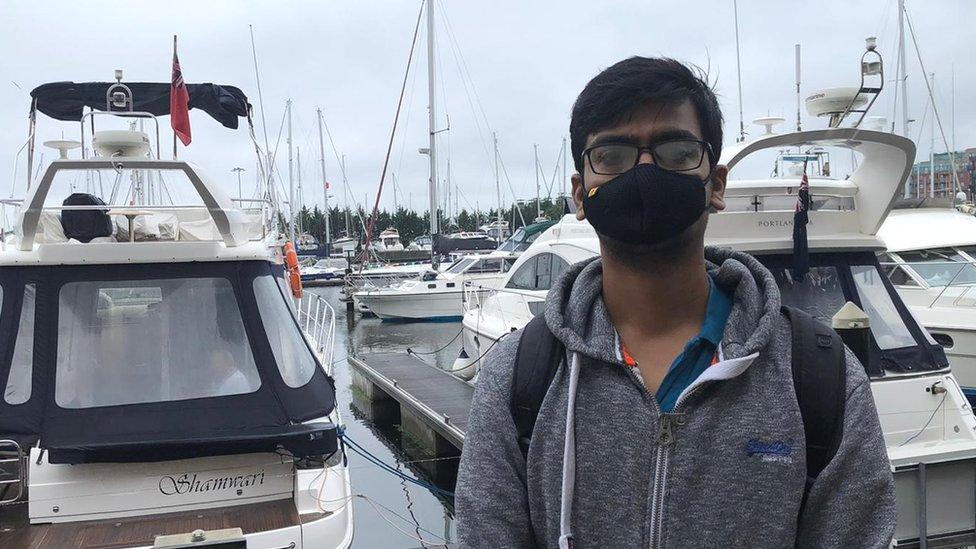
Swapnil, along with his peers, is happy to be vaccinated
BT worker Swapnil, 32, is confident the low rate is down to people following the guidelines.
"We've seen it in the pubs, they're taking lots of precautions, and the NHS is calling for vaccinations proactively - I got my second jab recently - so that could be the reason," he says.
"Ipswich is miles from London, so perhaps we don't have people coming from areas where it is high.
"People are out and about now, but they are taking the proper precautions."
He says he is keen to get the vaccine, as are his friends and family.
"Everyone is waiting their turn, and they are quite eager for their jabs."

'It's really surprising'
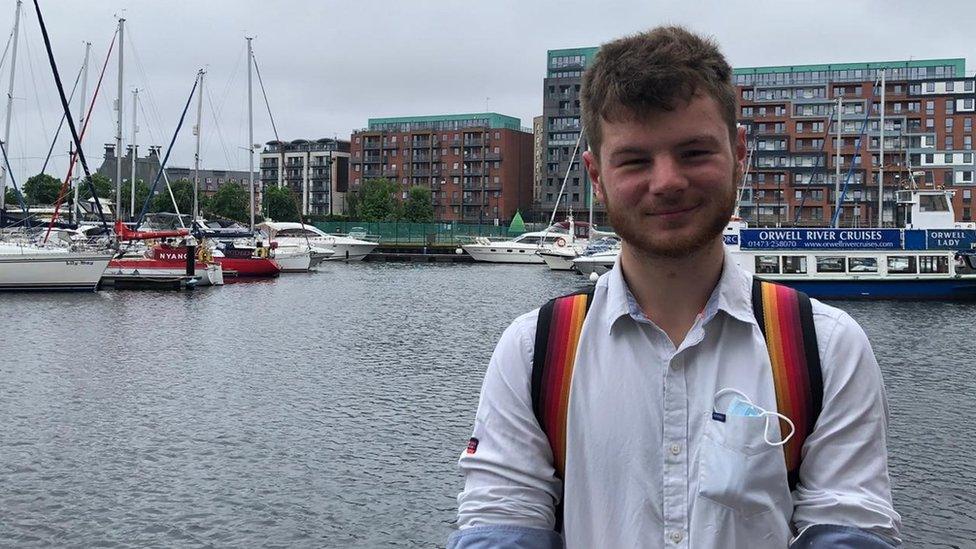
Adam, who works in a pub, says he has seen many instances of people not obeying the Covid guidelines
Barman Adam Muir, 22, who lives in Ipswich, is taken aback by the figures.
"It's rather surprising," he says, "because it's not like I've been seeing everyone following the guidelines.
"It's the regular stuff - no-one wearing their masks, no-one paying attention to the Covid guidelines.
"I suppose everyone is fed up with it, and I've seen it more so in hospitality - when you're drunk, you don't really pay attention."
He got his first jab during the early rollout, while working as a hospital cleaner, but worries not all of his peers are on board.
"My mate said he had social anxiety and he managed to get an [exemption lanyard], when he has no history of social anxiety.
"Other friends try to respect it as much as they can, wearing masks, but they are just getting through it because they are fed up.
"We've done our best, everyone is trying but it's still really, really surprising to me that we have the lowest. "
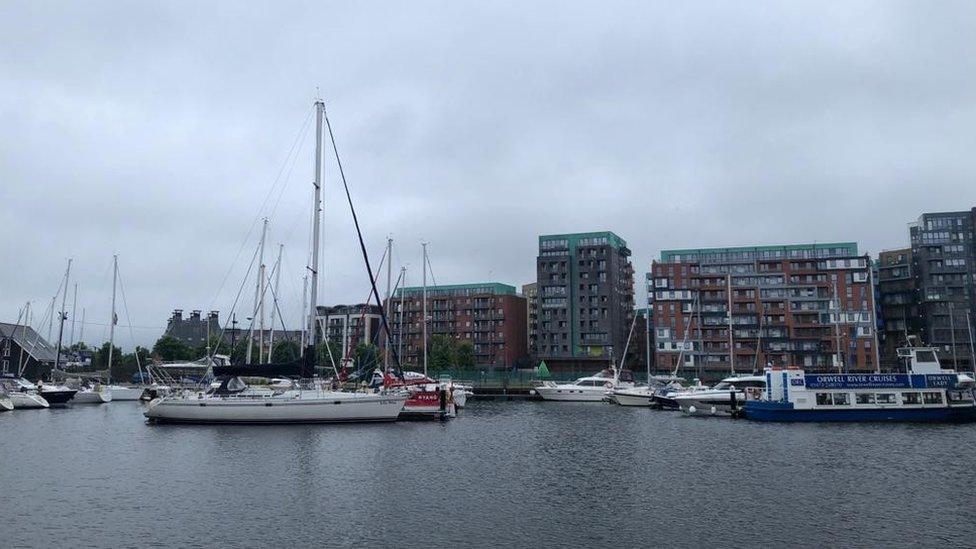
Ipswich Waterfront is home to bars, restaurants, cafes, and the University of Suffolk

'Everyone I know has had their jab'
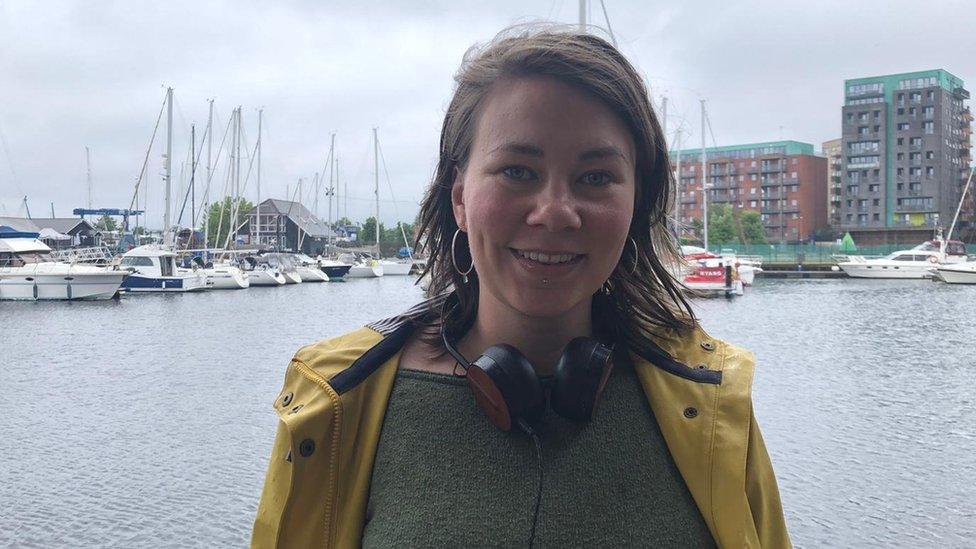
Naomi Vandebulk, who worked as an emergency transport attendant for a private ambulance company during lockdown, says she feels safe in Ipswich
Paramedic student Naomi Vandebulk, 30, is "quite surprised" by Ipswich's low rate.
"We had really high rates, so I wondered if it was due to immunity that has built up," she says.
"Everyone I know has had their first jab, I've had my first jab. It was really easy to get, and everyone seemed really on it.
"I don't know anyone that hasn't been pro getting it."
She also felt safe throughout the pandemic, even while working in healthcare.
"I was working as an EAT [emergency transport attendant] on an ambulance for a private company for a lot of lockdown - I didn't really have a lockdown - and I think everyone did OK."
You might also be interested in:

'The younger generation aren't following the rules'
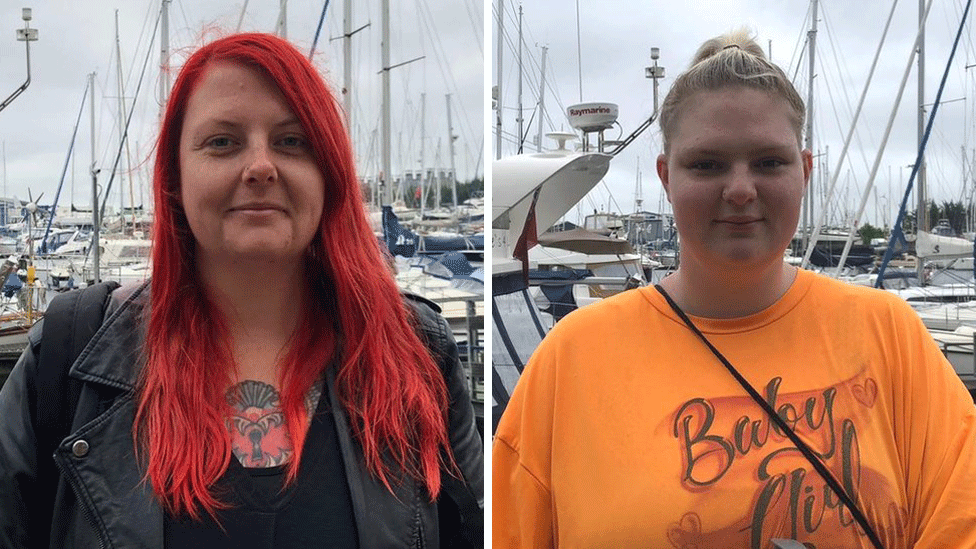
Rosie Loveday and Rhiannon Newby are both frustrated that the rules cannot be relaxed on 21 June
Friends Rosie Loveday, 32, and Rhiannon Newby, 21, both of whom have had their second jabs, are also surprised at the low rate.
"I'm shocked," says Rosie. "One day you hear we have the highest infection rate, and the next it's the lowest.
"I'm in town most days and most people are wearing masks, or they have exemption cards. Overall, it's not been too bad."
Rhiannon, who is deemed high risk due to asthma, has had a different experience.
"I'm the younger generation, and there hasn't been as much following the rules," she says.
"People are still going out doing what they shouldn't be doing,
"Just follow it [Covid regulations] and it will get better, slowly.
"We can't fully open on 21st June, and we would have been able to do that if you just stuck to those rules."
Rosie adds: "The younger generation, if they had kept to the regulations we wouldn't be in this mess."
They agree the vaccine rollout has been "amazing" - last month the Suffolk and North Essex NHS area gave its one millionth jab, in Ipswich.
But are their other friends in favour?
"I'd say it's 50/50, there's too much conflicting information on the internet, you can look things up and it can change your mind in a second," says Rosie.

'We're not disobeying the rules'
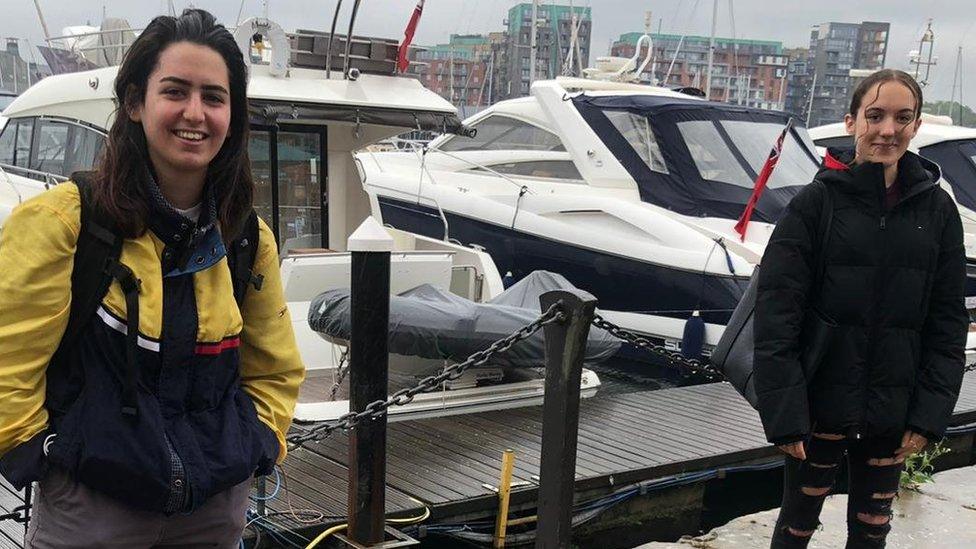
A-level students Karina Wiseman and Thea Wagstaff, both 18, are in the minority in thinking the low rate was not unexpected.
"Not many people come here for tourism, do they, especially at the minute, so it's not that surprising," says Karina.
"At the start, we had really low rates, and it was only when people went on holiday and brought it back that it went up."
Thea adds: "Sometimes town is quite busy, so you'd have thought it'd maybe peaked, but it seems to have stayed fairly steady."
Both say they will get the vaccine when offered, but are they and their friends sticking to Covid guidelines?
"There's a very small risk of us getting ill from it, but if we find out we've got it we're isolating straight away, we're not disobeying that," says Karina.
"In Ipswich, it's a bit of a mix.
"People are fed up with it all now."

'The town is busy but feels safe'
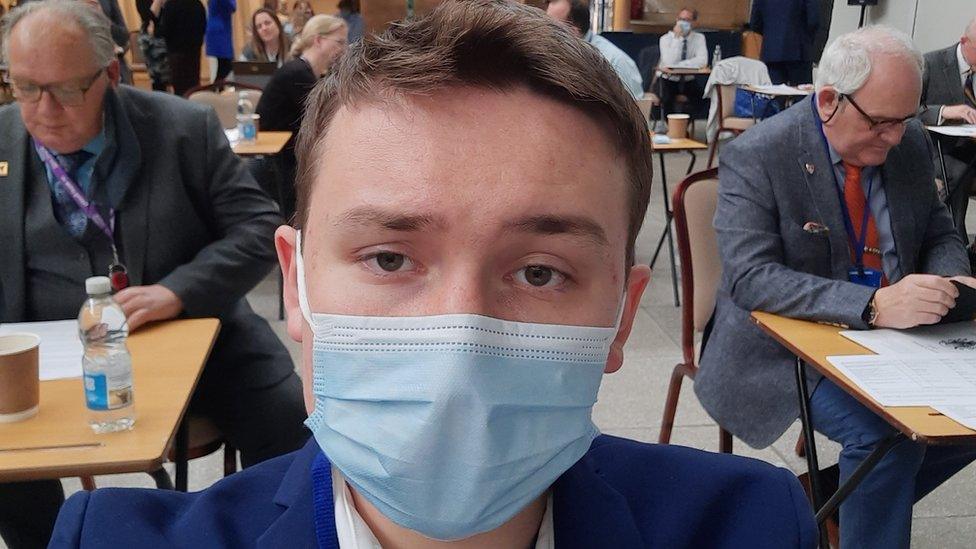
Nathan Wilson says Ipswich's geographical location may have helped
Newly-elected Suffolk County Council member Nathan Wilson says the people of Ipswich should be "proud" of the figures.
The 18-year-old Conservative councillor, who defeated the Labour incumbent in Chantry, Ipswich, at last month's local elections, says he thinks being a town with "some distance" from big cities has helped Ipswich's rates.
"It's impressive but in my opinion not entirely unexpected," he says.
"People are being cautious and are still sticking to the guidelines.
"I've been into town quite a lot recently and it's been really busy but even though it's been busy, it feels safe.
"The shops don't have huge crowds of people in them and the businesses have been good for it, making sure people wear masks, social distancing measures are in place and there's hand gel."
Mr Wilson says he has not been invited for his vaccine yet but he's "ready, just waiting for the call".
He puts Suffolk's good vaccination rate down to the doctors and their communication and people's willingness to have the vaccine.
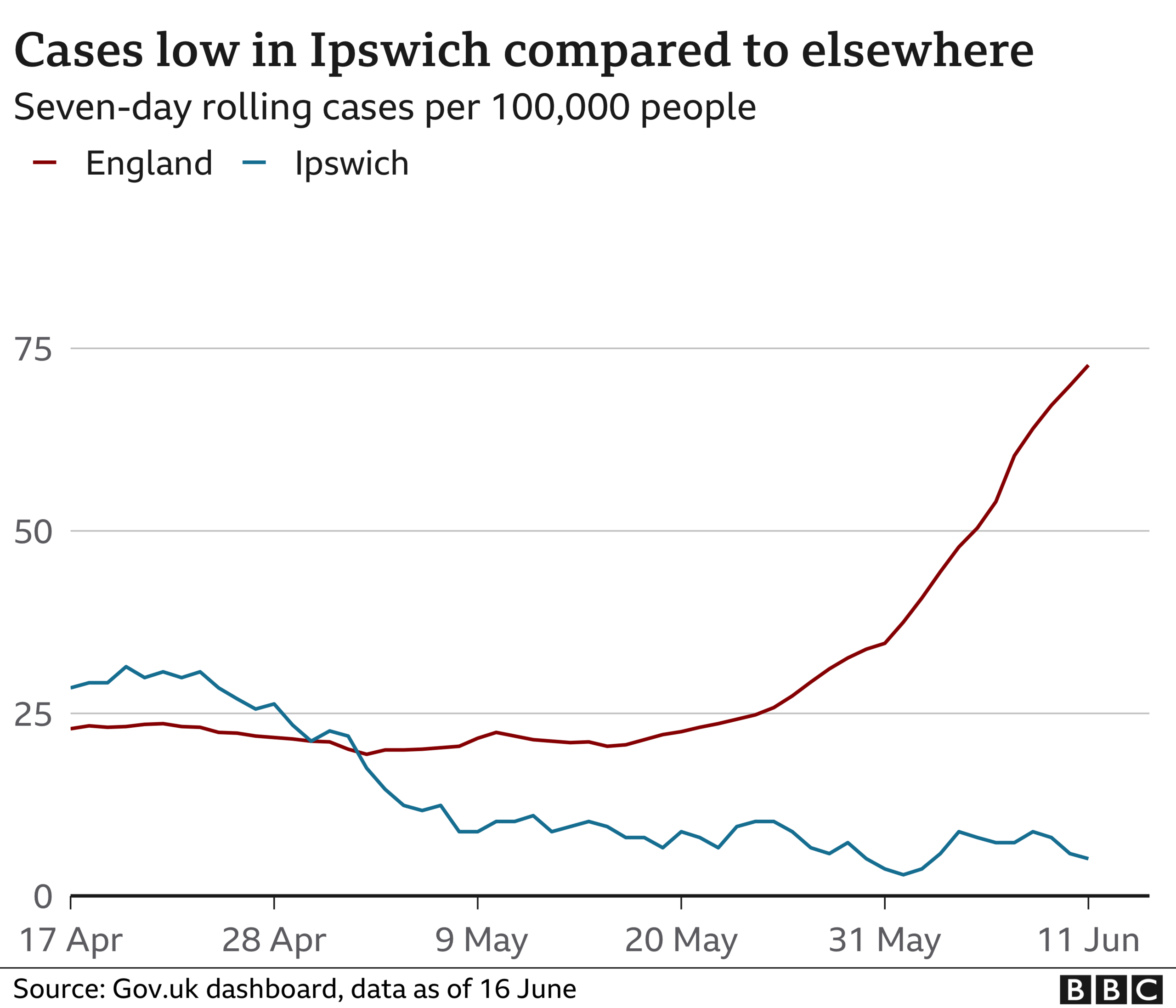
Mr Wilson's colleagues at the county council share his positivity, describing the rate in Ipswich and Suffolk overall as "very encouraging".
All local authority areas in Suffolk, except Babergh, are in the bottom 10 for Covid rates in the East of England.
"We thank residents who continue to play their part in stopping the spread of Covid-19 by following the basic guidance: hands, face, space, fresh air and getting their jabs," a public health spokesman says.
It was crucial to continue to follow the rules, he adds.
"Even if you have been jabbed, regularly test yourself at home if you will be out and about and meeting others, so you know if you've picked up the virus without realising."

Analysis - Rob England, BBC data journalist
For Ipswich and large parts of the East of England, this third wave seems to have had minimal impact so far.
Cases are rising across the region, but this is mainly being driven by known hotspots like Bedford and Luton, leaving Norfolk and Suffolk relatively untouched compared with the rest of the country.
This could be why, despite having areas which saw early surges in the Delta variant, the region is still recording the lowest levels of cases for the number of people who live there, in England.
Overall, this wave has seen more cases in young people, who are less likely to be vaccinated. This is true for Ipswich, but the numbers are still minimal, despite the area having a younger than average population.
Public Health England has always maintained that less built-up, more affluent parts of the country tend to have fewer cases for various reasons, but there are more rural, less populated areas nearby with higher cases - so this doesn't give us the full picture.
However, this third wave has shown us the situation in any part of the country can change very quickly, so it's impossible to consider any area as immune to a potential outbreak.

Find BBC News: East of England on Facebook, external, Instagram, external and Twitter, external. If you have a story suggestion email eastofenglandnews@bbc.co.uk, external
Related topics
- Published22 May 2021
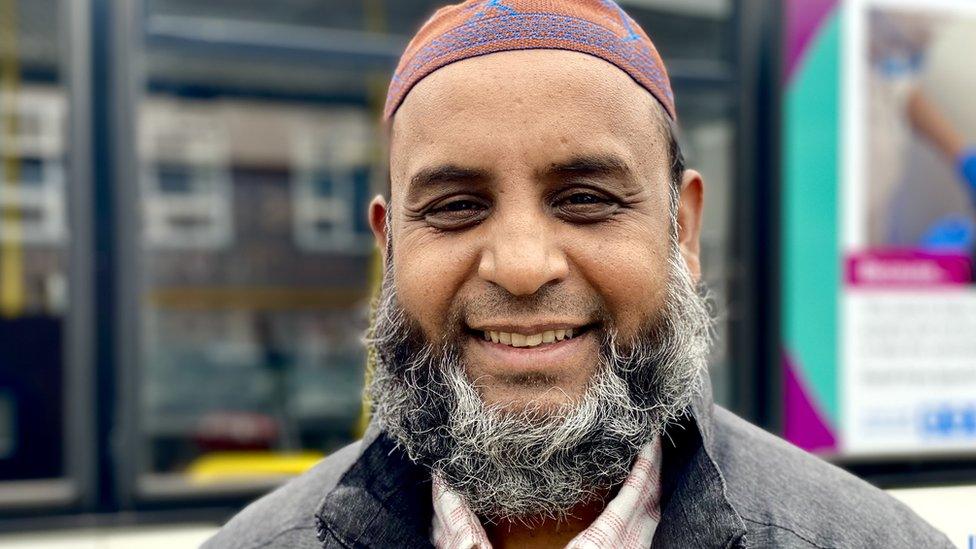
- Published12 April 2021
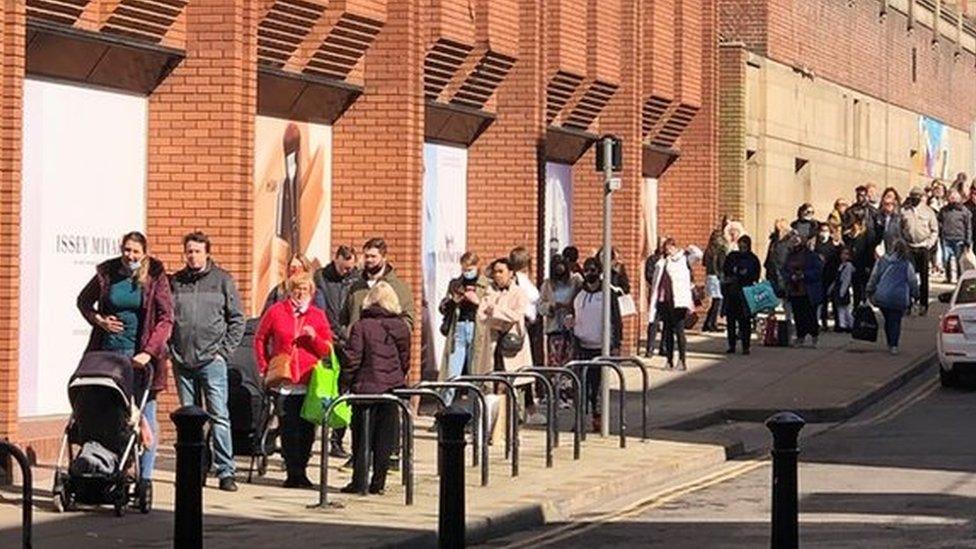
- Published17 March 2021
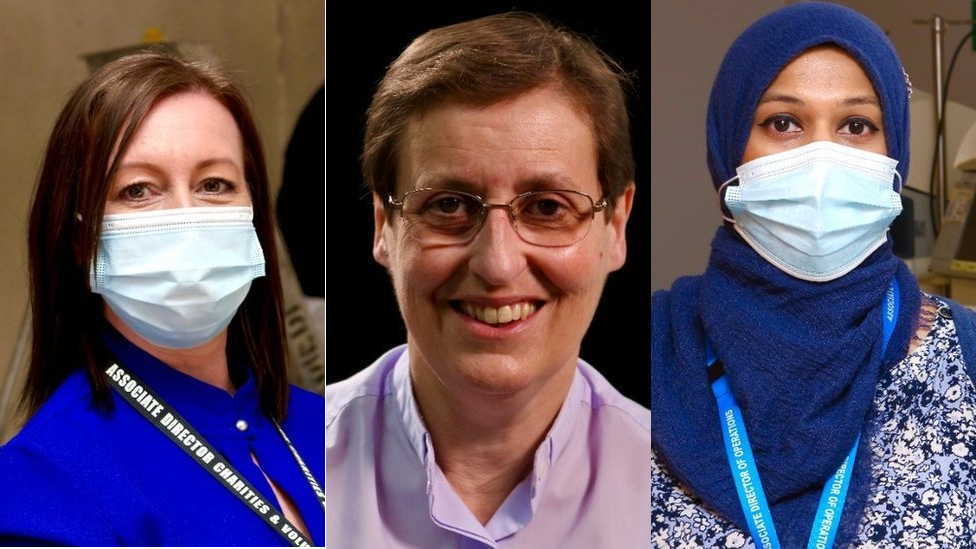
- Published6 January 2021
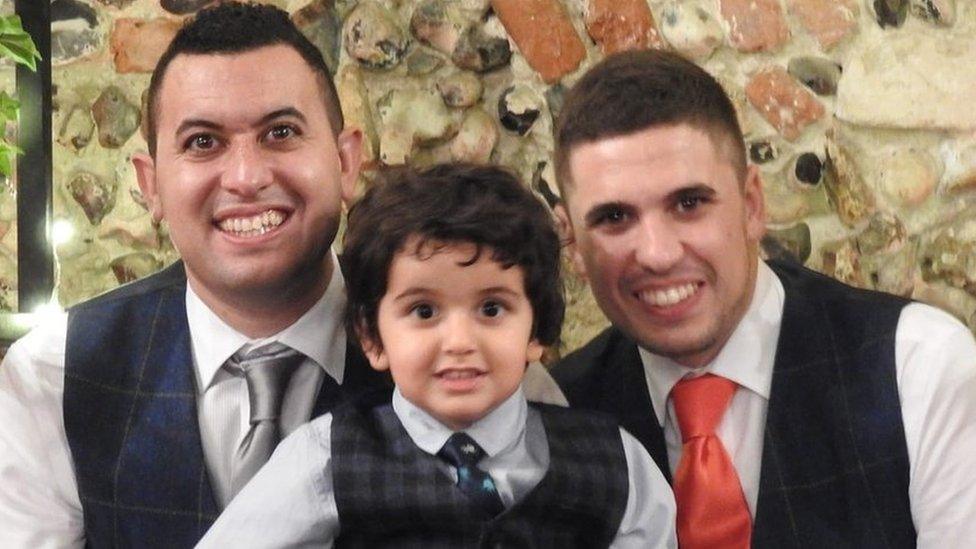
- Published30 December 2020
